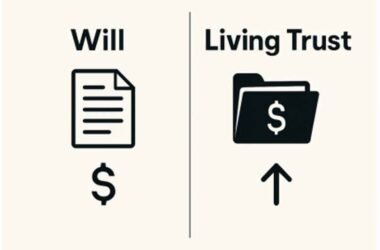The Hidden Side of Money in Relationships
Money can be one of the most sensitive topics between partners. While people often talk about emotional or physical forms of betrayal, financial infidelity is just as damaging. It happens when one partner deliberately hides, lies about, or mismanages money, creating a wall of secrecy that can slowly erode trust. Much like exploring Freedom Debt Relief reviews to understand if a company is trustworthy, spotting financial infidelity requires paying close attention to patterns and behaviors that don’t add up.
Unexplained Withdrawals and Missing Money
One of the clearest warning signs is when money seems to disappear without a clear reason. If you notice frequent withdrawals or charges that your partner can’t explain, it could be more than forgetfulness. While small purchases can slip the mind, a repeated pattern of vague or defensive answers when asked about missing funds may point to intentional concealment. This can leave you questioning not just where the money is going but whether your partner is being honest with you at all.
Secret Credit Cards or Hidden Accounts
Discovering a credit card or bank account you didn’t know existed can be a shocking sign of financial infidelity. Some people open hidden accounts to cover personal spending or even debts they don’t want to share. These hidden financial tools allow secrecy to thrive, often leading to mounting balances that eventually spill over into shared financial responsibilities. Transparency is key in a relationship, and hidden accounts cut directly against that foundation.
Defensiveness Around Money Conversations
Healthy relationships involve open conversations about money. If your partner consistently avoids or becomes defensive when you bring up financial matters, it might be more than just discomfort. Defensiveness can indicate that there’s something to hide. Over time, this avoidance creates a barrier to teamwork and shared decision-making, leaving one partner in the dark while the other controls financial choices without accountability.
Sudden Changes in Spending Patterns
Another red flag is an abrupt shift in spending habits. Maybe your partner starts buying luxury items, eating out frequently, or traveling without prior discussion. Alternatively, they may suddenly become overly frugal, cutting back on expenses to cover up money they’ve spent elsewhere. These drastic changes can signal that finances are being managed in ways that aren’t being communicated honestly.
Unpaid Bills Despite Adequate Income
If you both earn enough money to cover your bills but still face late notices or unpaid balances, financial infidelity may be at play. This could mean funds are being diverted toward hidden debts, gambling, or other expenses you don’t know about. The stress of unpaid bills, especially when they don’t match your household’s income, can strain the relationship and cause arguments rooted in confusion and mistrust.
Borrowing or Lending Money in Secret
Sometimes financial infidelity isn’t about spending but about borrowing or lending. Your partner may secretly take out loans or lend large sums to friends or family without your knowledge. Both situations carry risks for your shared financial stability. Borrowing without discussion can add hidden debt, while lending secretly can reduce your resources for bills, savings, or emergencies.
Emotional Impact of Financial Infidelity
Beyond the dollars and cents, financial infidelity takes a heavy emotional toll. It can make the betrayed partner feel excluded, undervalued, or deceived. Over time, this can damage communication, intimacy, and even the sense of partnership in the relationship. Just like other forms of betrayal, it isn’t only about the act itself but about the broken trust that follows. Repairing that trust requires not only addressing the hidden financial behavior but also rebuilding emotional security.
Steps Toward Prevention and Healing
The good news is that financial infidelity doesn’t always mean the end of a relationship. It does, however, require honest conversations and practical steps. Creating shared financial goals, setting a regular time to review household budgets together, and maintaining transparency with accounts can prevent secrecy from taking root. If damage has already been done, professional help—whether through couples counseling or financial advisors—can help both partners work through the issues.
Final Thoughts
Financial infidelity may not leave physical scars, but its effects on a relationship can be just as painful. Recognizing the signs early gives you a chance to address the problem before it grows out of control. Look for unexplained withdrawals, hidden accounts, defensive behavior, or sudden changes in spending patterns. By prioritizing openness and trust, couples can create not only stronger finances but also a healthier relationship. After all, money isn’t just about numbers—it’s about honesty, respect, and building a future together.







